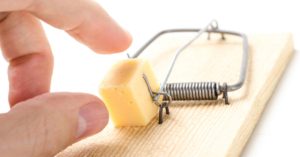Fun is the Lubricant to Risk Taking
 Survival Mode vs. Exploration Mode
Survival Mode vs. Exploration ModeBy Henry Zhao
Obsessive Compulsive Musical Revelations - Henry Zhao Survival Mode vs. Exploration Mode
Survival Mode vs. Exploration ModeBy Henry Zhao
As a valued member of our e-mail community, you will receive updates on events, stories, performances and more in our monthly newsletter, along with the occasional special announcement to give you the latest news in folk/roots. We promise your e-mail is safe with us. We don’t sell or share our database with any third-party vendors.
All Material Copyright © 2001-2024 FolkWorks. All rights reserved. Website by: Integritive
This website uses cookies to ensure you get the best experience on our website, analyze site traffic, and show event times in your timezone. By continuing to browse the site, you are agreeing to our use of cookies.
AcceptWe may request cookies to be set on your device. We use cookies to let us know when you visit our websites, how you interact with us, to enrich your user experience, and to customize your relationship with our website.
Click on the different category headings to find out more. You can also change some of your preferences. Note that blocking some types of cookies may impact your experience on our websites and the services we are able to offer.
These cookies are strictly necessary to provide you with services available through our website and to use some of its features.
Because these cookies are strictly necessary to deliver the website, refusing them will have impact how our site functions. You always can block or delete cookies by changing your browser settings and force blocking all cookies on this website. But this will always prompt you to accept/refuse cookies when revisiting our site.
We fully respect if you want to refuse cookies but to avoid asking you again and again kindly allow us to store a cookie for that. You are free to opt out any time or opt in for other cookies to get a better experience. If you refuse cookies we will remove all set cookies in our domain.
We provide you with a list of stored cookies on your computer in our domain so you can check what we stored. Due to security reasons we are not able to show or modify cookies from other domains. You can check these in your browser security settings.
We also use different external services like Google Webfonts, Google Maps, and external Video providers. Since these providers may collect personal data like your IP address we allow you to block them here. Please be aware that this might heavily reduce the functionality and appearance of our site. Changes will take effect once you reload the page.
Google Webfont Settings:
Google Map Settings:
Google reCaptcha Settings:
Vimeo and Youtube video embeds:
You can read about our cookies and privacy settings in detail on our Privacy Policy Page.
Privacy Policy



